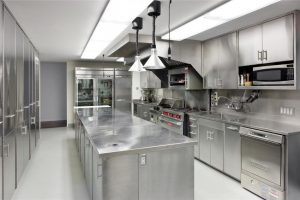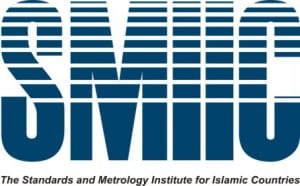By Marco Tieman
The extended Corona lockdowns meant an exponential growth in online ordering of food and beverages but at the same time also an unfortunate destruction of the HORECA: hotel, restaurant, and coffee café industry.
A traditional food and beverage (F&B) outlet has three zones:
- Front-of-house: seating zone
- Point-of-sale: payment counter and administration
- Back-of-house: kitchen and storage
Not only has an F&B outlet invested in significant space for the front-of-house, but also the location of the outlet, against a premium price, to ensure (1) high traffic (e.g.: in the city) (2) convenience (e.g.: easy parking and wheel chair access) and (3) enhanced experience (e.g.: quality of seating zone and view from the window). It is evident that the design and cost structure of a traditional F&B outlet is not cost effective and efficient for online ordering and home delivery.
 Hence, the exponential growth of on-line F&B ordering gave birth to a new business model: the cloud kitchen, or also known as dark kitchen, virtual kitchen, or ghost kitchen. A cloud kitchen is a central kitchen that has only a point-of-sale and back-of-house, which is purely catering for online ordering and home deliveries. There is no seating zone and no direct interaction with (and inspection by) the end consumer. The cloud kitchen is located in a cheap location, possibly an industrial area. A cloud kitchen can be made up of multiple kitchens of different F&B brands under the same premise, in separate premises, or it could be one single kitchen shared by multiple brands.
Hence, the exponential growth of on-line F&B ordering gave birth to a new business model: the cloud kitchen, or also known as dark kitchen, virtual kitchen, or ghost kitchen. A cloud kitchen is a central kitchen that has only a point-of-sale and back-of-house, which is purely catering for online ordering and home deliveries. There is no seating zone and no direct interaction with (and inspection by) the end consumer. The cloud kitchen is located in a cheap location, possibly an industrial area. A cloud kitchen can be made up of multiple kitchens of different F&B brands under the same premise, in separate premises, or it could be one single kitchen shared by multiple brands.
The cloud kitchen concept also became property investment projects in several countries, where multiple ‘restaurants’ and ‘coffee café’s’ are renting kitchen spaces in the same building. Last year, GrabFood opened its first cloud kitchen in Singapore. e GrabKitchen, which shares a building with a factory and warehouse, has 10 virtual restaurants. Each kitchen measures about 129 to 226 sq ft and is equipped with sinks and other fixtures. e tenants supply their own refrigerators, cooking gear, utensils and ingredients.
The cloud kitchen allows also the creation of virtual brands, where two different online restaurant or coffee café formulas are making use of the same kitchen. Centralisation is also an opportunity for industrialisation of food production by big F&B brands, reducing manpower in the kitchen.
Home delivery is done by a fleet of vehicles (often (motor) bikes) from the restaurant or coffee cafe brand owner (like McDonald’s), food-ordering aggregator apps (like GrabFood), or outsourced to a logistics service provider.
What are halal considerations of cloud kitchens?
- Halal is a supply chain responsibility for the brand owner, which does not stop at the central kitchen but includes the delivery to the doorstep of the customer. This is often not implemented by brand owners, although clearly mentioned in the halal standard. As this is still hardly being audited by halal certification bodies, few brand owners and e-commerce portals are addressing halal logistics in the last mile today. In Muslim (majority) countries, halal cannot be mixed with non-halal in the last mile delivery to protect the halal supply chain integrity but also the halal reputation of the F&B brand.
- Sharing a kitchen for a halal restaurant with another operator has major implications for halal risk management control and reputation management. Halal risk management control is a major challenge when you are not in full control of your kitchen, in terms of access control, sharing of resources (water, cleaning, tools, pest control, etc.), storage, and materials handling equipment. In case there is a halal issue in the central kitchen building with a different operator, your brand can be affected too as it is produced in the same building. When your company wants to carry a halal certificate, the kitchen operations and halal assurance system needs to be well designed by an expert
- Virtual branding, producing different brands in the same kitchen, effects multiple brands with a single halal issue as there is a sharing of ingredients, cooking gear, utensils, storage, materials handling equipment, etc. The halal assurance system and halal risk management control need to be well designed by an expert to minimise halal risks.
- Halal trust, in particular halal authenticity, needs to be strengthened for F&B brands as the consumer cannot inspect the F&B outlet anymore with every encounter with the F&B brand. The F&B food production becomes a black box, which is vulnerable for ‘stories’ how the products are being produced and claimed non-compliance.
- ‘Halal kitchen’ concept which is used by hotels, airline catering, and restaurants that also serve alcoholic beverages is difficult to implement in Muslim (majority) countries for cloud kitchens where halal needs to be segregated from non-halal also in last-mile transport. Technically, alcoholic beverages should be delivered separately and from a different location.
As the halal cloud kitchen is evidently being introduced in Muslim and non-Muslim countries, it is important to be well designed in order to protect the halal supply chain integrity and halal reputation of F&B brands.
About the writer:
Prof. Dr. Marco Tieman is the founder and Chief Executive Officer of LBB International, a supply chain strategy consultancy & research firm in the area of procurement, production, and supply chain management. He is a full professor with Help University and a research fellow with the Universiti Malaya Halal Research Centre in Malaysia, conducting research in halal purchasing, halal supply chain management, and halal risk and reputation management. He won various academic awards for his research in halal purchasing and halal supply chain management.
Marco Tieman is the author of ‘Halal Business Management: a guide to achieving halal excellence’.



